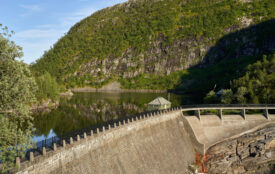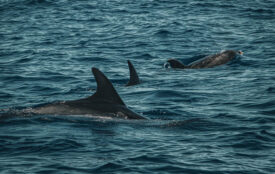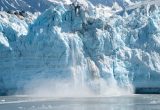Are we undermining our natural heritage?
Almost a third of all natural World Heritage Sites under threat of oil, gas and mining exploration. Risk rises to almost two thirds for natural World Heritage Sites in Africa Investors warned to assess risk of backing extractive companies threatening WHS.
In our report “Safeguarding Outstanding Natural Value”, we describe how almost a third of all natural World Heritage Sites has the threat of oil, gas and mining exploration hanging over it. This threat rises to an alarming 61 per cent in Africa. Natural World Heritage Sites are places of outstanding natural value, such as the Grand Canyon, the Great Barrier Reef, and the Selous Game Reserve in Tanzania.
The new assessment – in a report called Safeguarding Outstanding Natural Value, produced by WWF, Aviva Investors and Investec Asset Management – puts the risk at a higher level than previously thought. The report also brings to light the risk to investors of involvement with extractives companies working, or who might work, in these special places now or in the future.
Covering less than one per cent of the planet and containing outstanding natural value such as iconic landscapes and species, natural World Heritage Sites are in increasing danger of exploitation and irreparable damage, which in turn damages the communities who depend on these amazing places for their livelihoods.
Furthermore, natural World Heritage Sites are home to some of the rarest and most treasured animals on Earth, such as mountain gorillas, African elephants, snow leopards, whales and marine turtles.
The threat level relates to active operations by extractive companies, or intrusion that may come as a result of concessions for exploration of minerals or oil and gas overlapping these sites.
Investors are being warned in the report of their risk exposure if they back the companies involved, both in terms of financial risk and threats to their reputation; in short, there is too much risk for not enough reward in this case.
WWF is calling on investors to use the evidence in the report to engage with the extractive sector at industry level to encourage the wider adoption of ‘no go’ and ‘no impact’ commitments for natural WHS, and for companies to proactively disclose active, existing, or intended activity within, or adjacent to, natural World Heritage Sites.
WWF-UK’s Chief Executive David Nussbaum said “We are going to the ends of the Earth in pursuit of more resources – resources, including minerals, oil and gas, that are becoming more difficult and more expensive to extract. Some of the world’s most treasured places are threatened by destructive industrial activities that imperil the very values for which they have been granted the highest level of international recognition: outstanding natural value.
“Protecting these iconic places is not only important in terms of their environmental worth; it is crucial for the livelihoods and future of the people who depend on them. Working with industry leaders such as Aviva and Investec will help us to get this message out to the wider finance industry. Investors have a unique opportunity, and indeed responsibility, to be stewards of capital and shape our future.”








